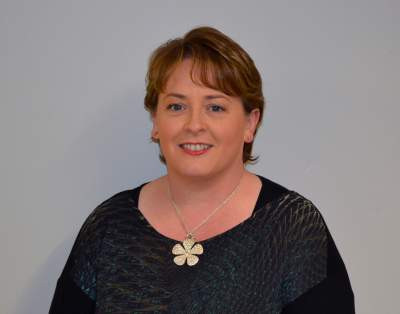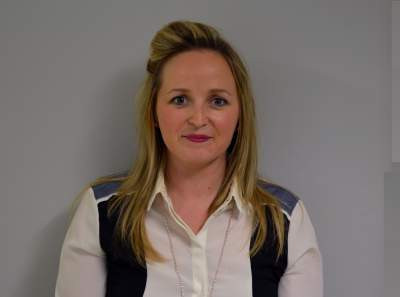Package summary
Notes
Courses in package
Autism, Learning Styles, and Visual Teaching Methods
Event summary
Date
Start Time
End Time
Webinar Online,
Booking closes
Autism, Learning Styles, and Visual Teaching Methods
Visual strategies are widely used when working and living with autistic children and young people, as they:
• Complement the learning style of many autistic children, young people and adults
• Can be introduced alongside other intervention strategies.
• Are adaptable, portable and can be used in most situations.
The use of visual strategies can have a notable impact on how an autistic child experiences family, community, and school life, as they help to clarify expectations and make abstract concepts more concrete. Visual strategies support children as they develop effective communication and interaction skills, as well as accessing the curriculum.
Professionals and parents will become more familiar with how to adapt the school or home environment and individualised tasks to meet the needs of the child, in order, to enhance learning, play or leisure skills and social interactions.
Expected Outcomes
• Understand the importance of visual teaching methods.
• Develop some visual strategies that can be used to support the child
• Using visuals in school or the family home
Notes
Location
Webinar Online
Get Directions
Majella Nugent
Majella’s training specialism is Relationship and Sexuality Education, Transitions and Special Education Needs. Majella has contributed to the development of the curriculum as a Professional Associate with CCEA for learners with MLD and co-ordinated specialist trainings including Transition to Higher Education (Ulster University and Trinity College Dublin), 16+ Education and Employment, and Sibling trainings. Majella is an Associate Lecturer on the Post Graduate Certificate with Mary Immaculate College Limerick.
Autism and Communication
Event summary
Date
Start Time
End Time
Webinar Online,
Booking closes
Autism and Communication.
This session explores the differences in neurotypical vs autistic communication styles. It provides delegates with an understanding of how to appreciate communication differences and adapt their communication style to better support autistic children and young people at home and school.
Delegates will:
· Explore current relevant theories related to communication differences
· Develop an understanding of their own communication preferences and how these might hinder or support the autistic communicator
· Explore a range of supportive practices in receptive (understanding) and expressive communication
Notes
Location
Webinar Online
Get Directions
Edel Quinn
Edel's main specialisms are in early intervention and delivering training in the implementation of visual strategies and behaviour. Edel is a Certified TEACCH Trainer with Division TEACCH, North Carolina. Edel has developed and delivered anxiety trainings and anxiety research projects to parents and professionals across Ireland. She has delivered at Autism and Mental Health Conference, NAS and the Autism Congress. Edel is an associate lecturer on the Post Graduate Autism Certificate with Mary Immaculate College, Limerick. Edel is working towards accreditation with BACP as a Cognitive Behaviour Therapist.
Autism and Reframing Behaviour
Event summary
Date
Start Time
End Time
Webinar Online,
Booking closes
Autism and Reframing Behaviour
This training will introduce participants to the ongoing paradigm shift in understanding behaviour from a physiological perspective, drawing on research from neuroscience, psychology, and interpersonal neurobiology.
It will encourage participants to pause and reflect on their current beliefs and reactions to the behavioural differences presenting within their autistic students. Participants will be supported to consider behavioural differences that are authentic to the autistic child and young person and their invaluable role in maintaining joy in their lives. Furthermore, participants will be supported to understand the underlying factors contributing to distressed behaviours, and how supporting professionals can help.
Specific topics will include:
• Understanding the ongoing paradigm shift in how we think about behaviour.
• Factors that contribute to distressed behaviour for an autistic child or young person.
• The important role of neuroception and sense of ‘felt safety’ in promoting a balanced regulatory state.
• The importance of professional self-care in the context of supporting an autistic child or young person in distress.
Participants will:
• Gain an understanding of the ongoing paradigm shift in how we think about ‘behaviour’ presenting in our autistic children and young people.
• To support participants to recognise their inner biases, judgements and beliefs that may be impacting upon how they support an autistic child or young person in distress.
• To understand the underlying and environmental factors contributing to distress and overwhelm within the autistic child or young person.
• Understand their role in managing their own regulation as an essential process to the co-regulatory support they provide their autistic students.
Course Overview
• Paradigm shift and reframing our perception of behaviour.
• Underlying and environmental factors contributing to distressed behaviour.
• Proactive and reactive supports when working with distressed behaviour.
Notes
Location
Webinar Online
Get Directions
Majella Nugent
Majella’s training specialism is Relationship and Sexuality Education, Transitions and Special Education Needs. Majella has contributed to the development of the curriculum as a Professional Associate with CCEA for learners with MLD and co-ordinated specialist trainings including Transition to Higher Education (Ulster University and Trinity College Dublin), 16+ Education and Employment, and Sibling trainings. Majella is an Associate Lecturer on the Post Graduate Certificate with Mary Immaculate College Limerick.
Autism and Understanding Anxiety for those with additional learning difficulties
Event summary
Date
Start Time
End Time
Webinar Online,
Booking closes
Autism and Understanding Anxiety for those with additional learning difficulties
For many autistic students, school can be a major source of stress. Everyone shows their anxiety in individual ways, so the most reliable observations that a student is anxious are going to be made by the people who know the student best. This shows the importance of working closely not only within the family structure, but also with the school staff.
This session is an introduction to strategies that can be used to alleviate the experience of anxiety in autistic students. This will include an introduction to cognitively based strategies and how to develop student centred strategies to deal with anxiety.
Participants will:
• Appreciate how anxiety can escalate and may result in an emotional response
• Develop some simple strategies to prevent the escalation of anxiety.
• Understand the basics of cognitively based management approaches.
Notes
Location
Webinar Online
Get Directions
Carolyn Frazer
Autism and Sensory Processing
Event summary
Date
Start Time
End Time
Webinar Online,
Booking closes
Autism, the Special School and Sensory Processing
Many autistic children and young people have differences in how they process the sensory stimuli in the world around them. Children and young people who presents with additional learning needs may experience more challenges with how they perceive and respond to sensory input. This course is designed to look specifically at the sensory processing needs of autistic children and young people with other complex learning needs, such as communication difficulties, physical or sensory difficulties, attention difficulties and medical needs.
Participants will:
• Understand the concept of sensory processing and how this relates to participation in daily activities.
• Apprecaite how sensory processing differences can affect the child or young person at home, in school and in other settings.
• Acknowledge the importance of identifying the potential sensory function of a behaviour.
• Gain knowledge about intervention strategies, which can address the sensory processing needs of the children and young people with additional and complex learning needs at home, in school and in other settings.
Notes
Location
Webinar Online
Get Directions
